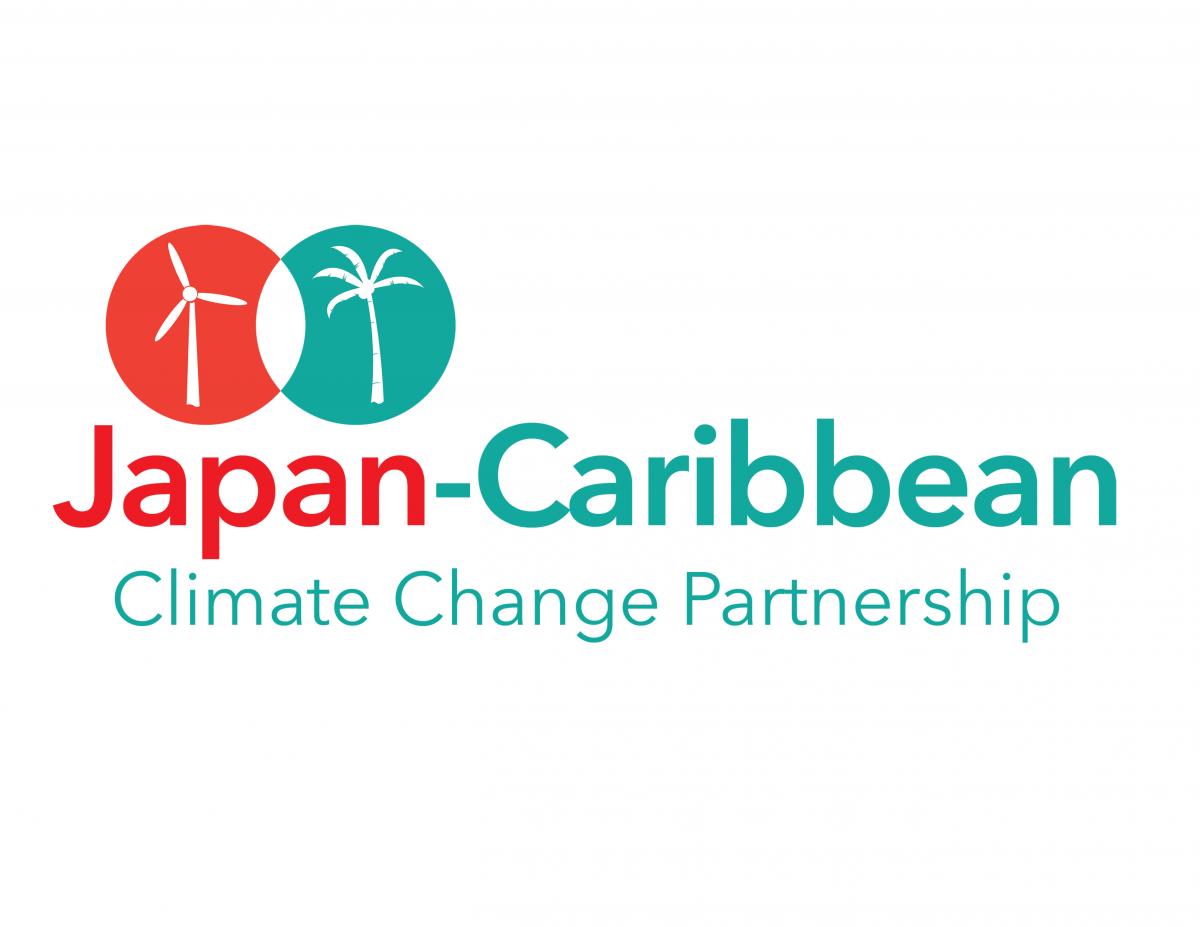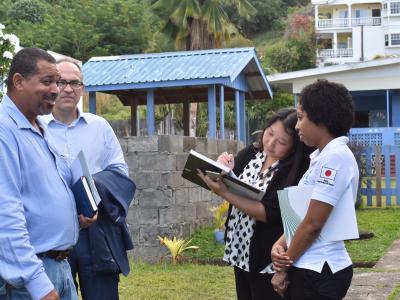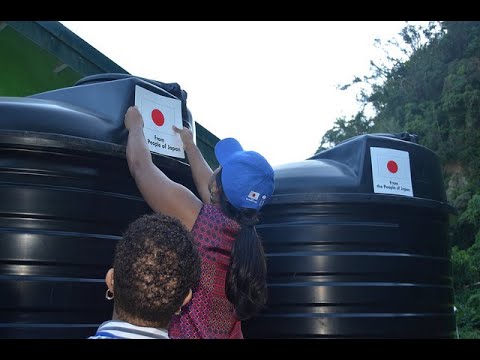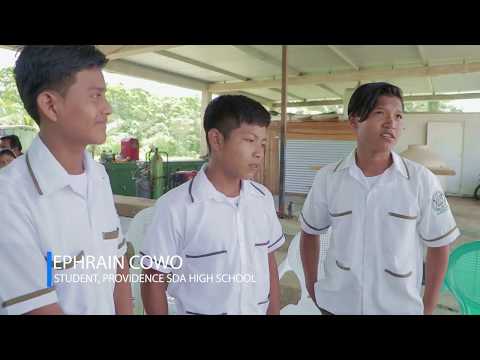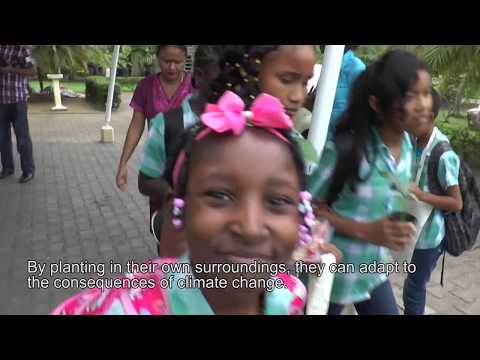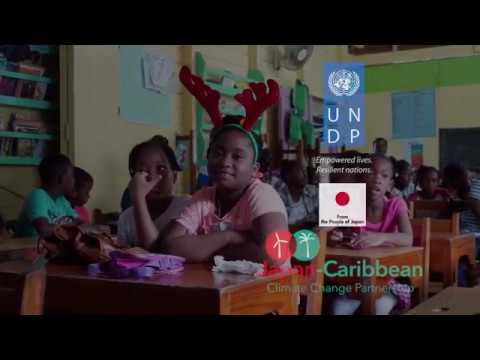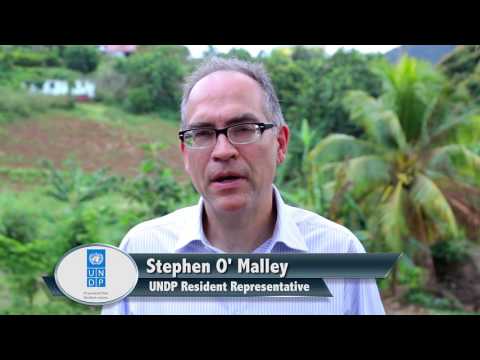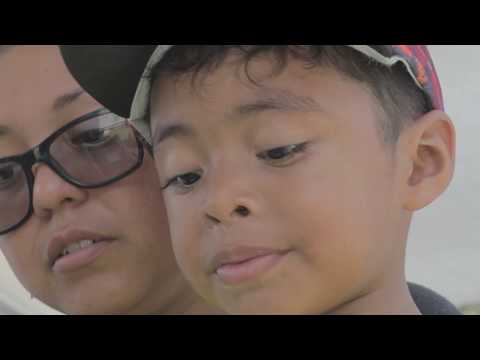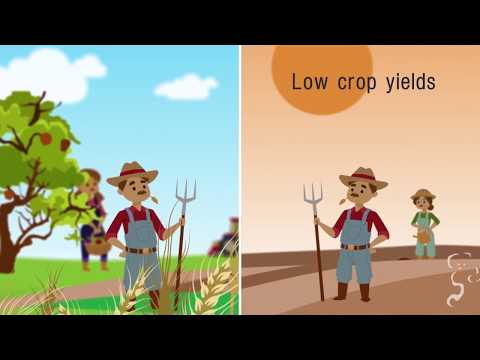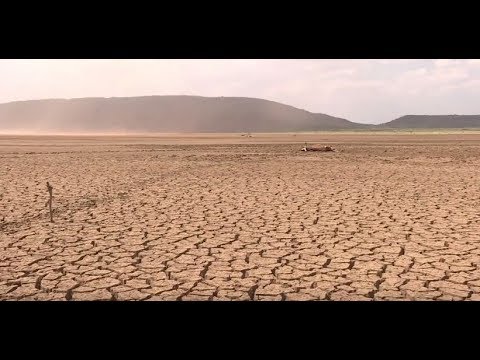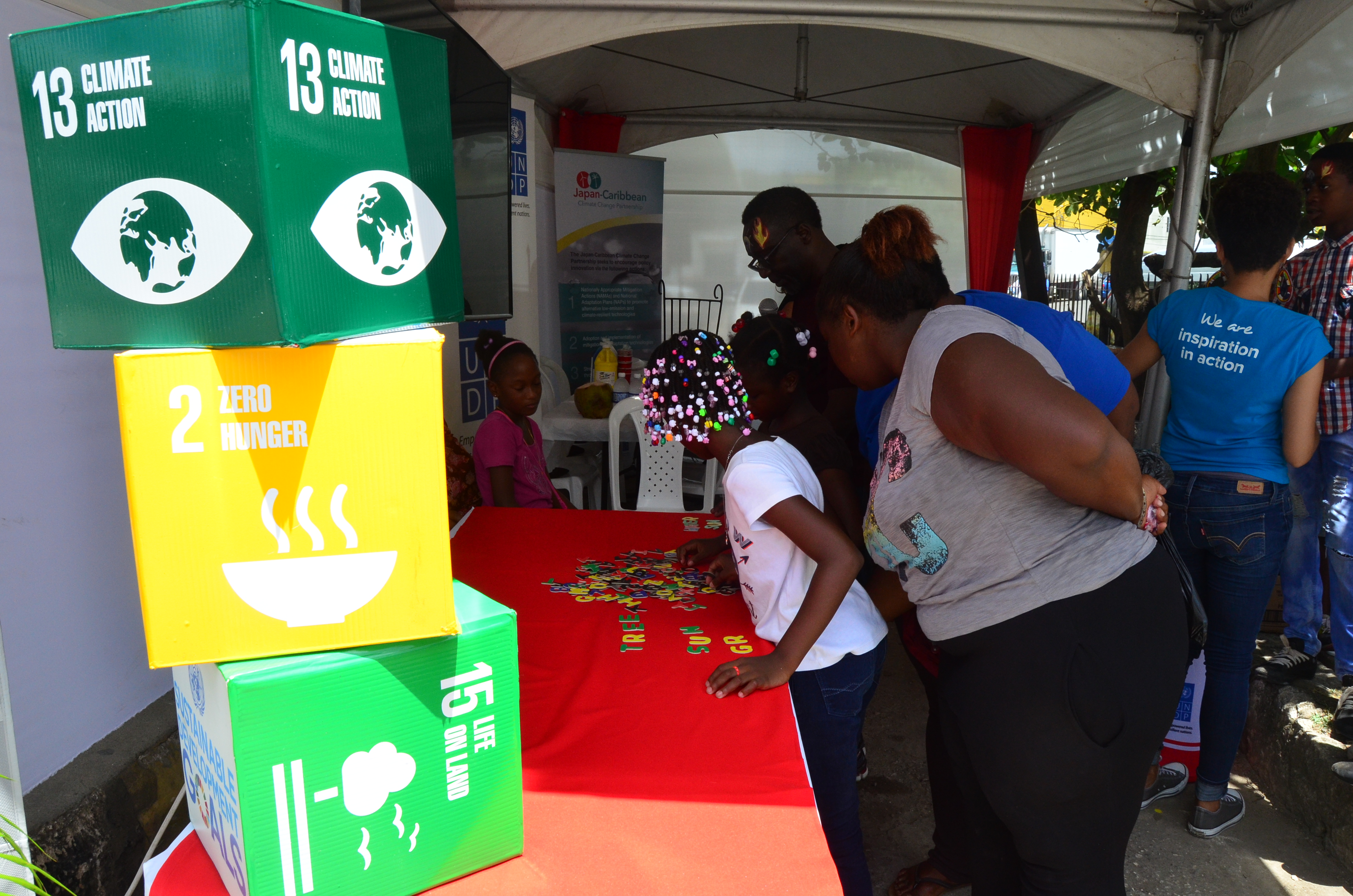
The Japan-Caribbean Climate Change Partnership (J-CCCP) was designed to strengthen the capacity of countries in the Caribbean to invest in climate change mitigation and adaptation technologies in a structured and prioritized manner, guided by their Nationally Appropriate Mitigation Actions (NAMAs) and National Adaptation Plans (NAPs).
Eight Caribbean countries - Belize, Dominica, Grenada, Guyana, Jamaica, Saint Lucia, St Vincent and the Grenadines, and Suriname - were supported in advancing the process of low-emission risk-resilient development by improving energy security and integrating into medium to long-term planning for adaptation to climate change.
- Regional
- Country Office
- Local Governments
- National Governments
- Non-Governmental Organizations
- Government of Belize
- Government of Dominica
- Government of Grenada
- Government of Guyana
- Government of Jamaica
- Government of Saint Lucia
- Government of Saint Vincent and Grenadines
- Government of Suriname
- United Nations Development Programme (UNDP)
Expected outcomes

Project Wrap-Up
Belize & Guyana Initiate NAP Process
J-CCCP Pilot Project Launched in The Grenadines
J-CCCP Partners with the Belize National Climate Change Office to Launch Feel the Change Campaign
J-CCCP Supports Study on Biogas and Renewable Energy from Biomass and Organic Waste in Belize
November, 2016
J-CCCP Supports COP 21 & 22 Panel Discussion at the Caribbean Renewable Energy Forum 2016
June, 2016
UNDP and UNFCCC Initiates Training Seminars for Climate Mitigation Actions in the Caribbean
January, 2016
Japan and UNDP kick start US$15 million Caribbean Climate Change Project
Over the course of three days, J-CCCP mounted a multi-media gallery to showcase the impact of J-CCCP's work over the project lifetime. The day prior, the project visited J-CCCP pilot projects in Saint Lucia where technology or knowledge from Japan has been transfered.
Agricultural Knowledge-sharing Event
J-CCCP invited farmers, agricultural practitioners, regional agencies and NGOs who work in agriculture to join nature farming and research experts from Japan to knowledge share. This event builds on the 19 agriculture-focused pilot projects implemented by J-CCCP and the study tour to Japan, completed in 2018.
UNDP's J-CCCP is supporting the attendance of 11 youth who have played key roles in advancing climate action in the region. Their participation builds on the 2017 Youth Climate Change Conference. Now, many of these youth have come together to create a NGO - Youth Climate Change Activists where they actively advocate for increased action among peers and decision makers.
Over thirty representatives from nine Caribbean countries met in Kingstown, St. Vincent and the Grenadines to better position themselves to access funding for climate change mitigation.
NAP Workshops in Belize and Guyana
Stakeholders, government representatives and development partners recently gathered to take Belize and Guyana one step closer to the finalization of their National Adaptation Plans (NAPs).
NAP Donor Symposium and Peer Learning
Representatives of the Governments of Saint Lucia and St. Vincent and the Grenadines gathered at UN House in Barbados to present their National Adaption Plans (NAPs) and priorities to members of the donor community who are active in the Caribbean. The following day, they were joined by colleagues from Jamaica and Grenada where they had the opportunity to share ideas, experiences and lessons learned surrounding their NAP process.
More than 100 climate scientists, researchers and negotiators from across the Caribbean and the world gathered at the Hilton Hotel in Port-of-Spain, Trinidad from October 9 to 12, 2017, to highlight the region’s climate change adaptation successes at the Caribbean Community Climate Change Centre (CCCCC) International Conference on Climate Change for the Caribbean.
Youth Climate Change Conference 2017
Caribbean and Japanese youth have put forward their recommendations for climate-smart actions for the region following two days of intense dialogue between October 10-11, 2017 at the third staging of the Youth Climate Change Conference at the Jamaica Conference Centre.
National Adaptation Plan Workshop for Latin America and the Caribbean
Representatives from twenty-six countries in the Latin America and Caribbean countries attended the regional workshop on national adaptation plans (NAPs), held in San Jose, Costa Rica, from 4 to 7 September, 2017.
Capacity Development for Media Practitioners
J-CCCP provided climate change training to more than 30 journalists from across the region. The two-day training seminar enabled media practitioners to learn and share best practices on climate change issues including, climate change science, economics and policy as well as the role of media entities in communicating on climate change.
Consultation for the Development of a Transportation NAMA in St. Vincent and the Grenadines
As St. Vincent and the Grenadines pursues the development of a Nationally Appropriate Mitigation Action (NAMA) in the transportation sector, stakeholders gathered to consult on the process.
Presentation of KAP Study Results and Campaign Brainstorming in St. Vincent and the Grenadines
Stakeholders, some of whom took part in data collection for the study, gathered to hear the results of a knowledge, attitudes and practices study conducted in St. Vincent and the Grenadines in December, 2016. Participants also assisted with the development of campaign approaches and committed to supporting campaign implementation.
Development of Belize's National Communication Strategy for Climate Change
J-CCCP supported the National Climate Change Office of Belize in the development of a national communications plan for climate change. This support was in the form of a workshop where stakeholders from key sectors across the country fed into the development of the plan.
Caribbean Climate Change Coordination Seminar
In April 2016, representatives from regional organisations gathered in St. Lucia to map synergies and actions between development partners and the Project relating to NAPs, NAMAs and knowledge management and communications. Organisations in attendance included: CARDI, CARICOM, CEDMA, CCCCC, CYEN, CIMH, CARPHA, and PANOS, among others. For NAP and NAMA development and pilot projects, organisations were asked to identify stages at which each organisation may be able to lend support based on their expertise, the specific nature of the assistance and how additional funding could be leveraged. Participants also contributed to plans under outcome 3, including policy events, study tours and campaigns and noted that the exercise was useful in order to break a trend of working in silos.-NAMA training
Training Seminar on the Development and Implementation of Climate Mitigation Actions
J-CCCP partnered with the United Nations Framework Convention on Climate Change Regional Collaboration Centre (UNFCCC RCC), the UNDP Low Emission Capacity Building (LECB) Programme and local Ministries in the months of June and September to conduct two-day training seminars in Belize, Grenada, Guyana, St. Lucia, St. Vincent and the Grenadines and Suriname. The seminars were designed to support the development of climate mitigation actions, including Nationally Appropriate Mitigation Actions (NAMAs). Approximately two hundred persons were trained in total.
National Adaptation Plans Regional Workshop for the Caribbean
Representatives from 10 Caribbean countries, including J-CCCP’s 8 beneficiary countries, met in Grenada’s capital of St. Georges to discuss strategies to prepare for the impact of climate change. Following Grenada’s final consultation on its National Adaptation Plan (NAP), they were able to share lessons from their experience of national adaptation planning, including some key topics such as political buy-in, coordination, integration of the sectoral plan, climate finance with peers through this two-day event. The NAP Assembly was co-hosted by Grenada’s Ministry of Education, Human Resource Development and the Environment; the UNDP Japan-Caribbean Climate Change Partnership (J-CCCP); and the NAP Global Network.
National Communication Strategy Development Workshop - Belize
J-CCCP supported the National Climate Change Office of Belize in the development of a country-wide communications strategy. This workshop saw Communications Professionals from Belizean Ministries, CBOs, NGOs and the media gather to have inputs into the strategy. The Project will focus its efforts on implementing the initial stage of the strategy with support from other local stakeholders.
|
|
Please also view the Project's Mid-term Evaluation Report.
- Yoko EbisawaJapan-Caribbean Climate Change Partnership - Project Manager
- Neisha ManickchandJapan-Caribbean Climate Change Partnership - Technical Specialist
- Sherri FrederickJapan-Caribbean Climate Change Partnership - Monitoring & Evaluation Analyst
- Penny BowenJapan-Caribbean Climate Change Partnership - Communications Associate
- Wilfred TateJCCCP National Focal Point - Belize
- Claudine RobertsJCCCP National Focal Point - Dominica
- Astrid LynchJCCCP National Focal Point - Guyana
- Annlyn Mc PhieJCCCP National Focal Point - Grenada
- Eltha BrownJCCCP National Focal Point - Jamaica
- Kurt ProspereJCCCP National Focal Point - Saint Lucia
- Ruthvin HarperJCCCP National Focal Point - Saint Vincent and the Grenadines
- Sharon LegimanJCCCP National Focal Point - Suriname

